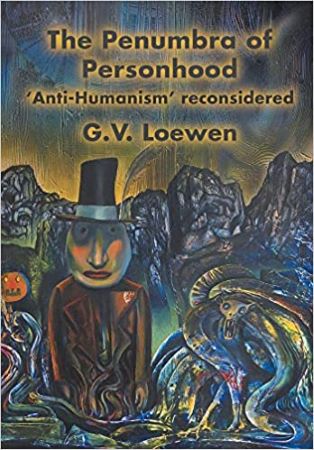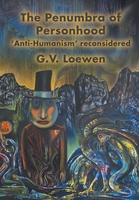The Penumbra of Personhood: 'Anti-Humanism' reconsidered
The drive to overcome nature is a projection of the anxiety about succumbing to our own nature. Inevitably, this conflict creates a vicious circle. For in subduing nature to our technical goals – themselves arranged so that our human frailty is to be overcome – we end up destroying the world in which we must live.
Of late, we have begun to recognize this viciousness, both in our acts and more profoundly, in our thoughts. Yet the attempt to lose our nature by losing Nature holds an even deeper conflict: “The most effective means of escaping spiritual trial is to become spiritless, and the sooner the better. If only taken care of in time, everything takes care of itself.” (Kierkegaard, 1844).
Social philosopher G.V. Loewen is the author of forty books on ethics, education, aesthetics, religion, health and social theory, and more recently, metaphysical adventure fiction. He was a professor in the interdisciplinary human sciences for two decades.
“The Penumbra of Personhood is not only the cumulative effect and expression of the primordial characters of Dasein, flung along with my being into the world,” writes the author, “it is also the most graceful and eloquent response to the unknown that we possess. It is, in its own thrown essence, the fullest divergence from any violence of the reactionary or technique of the manager. It is objectively what we are and thus what we have to offer our own time.”
Ironically, the State has to contend not with history, the writing of which it mainly controls, but rather morality, part of the pre-State metaphysics and a version of collective human vanity that also claims to be timeless.
If it is at first striking that even in our time, morality has retained such a hold, on second glance it is at least not surprising. It has ironically become the weapon of the private person, and this is very much against its own cosmogonical backdrop.
Morality is shared, as is belief that the one stems from the other, and in this they are quite unlike either ethics or opinion, also having become the pedestal upon which any demagogue can be placed. The uttering of a “higher law” betrays the moralist at every turn.
Even if the State can delicately navigate these potentially dangerous currents while affording to ignore mere moral editorializing – an inevitable whirlpool in any democracy at least – if enough “private” people recognize that their misgivings are shared, morality can once again assume a vestige of its former mantle. It becomes a rip-tide of conventional “wisdom” against which this or that elected regime may ride or be ridden over.
If this is the most vulgar expression of Dasein’s will to life, and even ontically, will to freedom, then it cannot be ignored by the reflective person. It is the final avenue of appeal in a rationalist social organization.
Equipped with its own divinity, morality finds that it still has some suasion in the courts, certainly within many families, and in the schools. It is society’s “back door man,” to use an old Blues phrase, to point up its consistent vulgarity.


